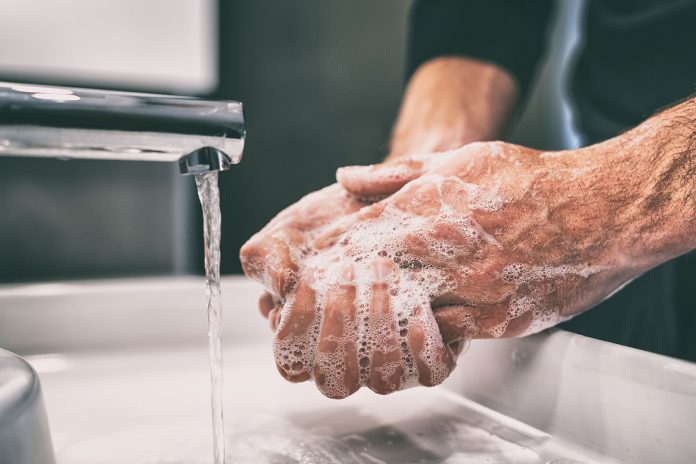Eczema is a chronic skin disease that typically begins in childhood and lasts into adulthood. atopic eczema and contact dermatitis are the two most common types of eczema. Eczema is characterized by itching, dry skin, and red patches that appear crusty. Eczema’s underlying cause is unknown, but genetics and the environment are thought to play a role. Treatment options for eczema often include prescription-strength corticosteroids taken orally or applied topically to affected areas of the skin. Doctors may also recommend avoiding certain personal hygiene products, like the following soaps, to reduce eczema flare ups:
-
1. Antibacterial soaps
Antibacterial soaps can cause eczema and irritated skin. Triclosan, which kills bacteria and irritates the skin, is one of the harsh ingredients. A few antibacterial soaps are specifically designed for people with sensitive skin and contain gentler ingredients. Organic ingredients and aloe vera are used in these soaps to moisturize the skin.
-
2. Soaps with strong fragrances
Those with eczema or sensitive skin should avoid fragrances and drying ingredients soaps. Fragrance, heavy oils, alkalis, alcohols, surfactants, and other harsh chemicals should all be looked for on the label. Itching Rashes can be caused by these ingredients even if the person has not been diagnosed with eczema or sensitive skin. People with eczema or sensitive skin can be irritated by fragrances and other harsh chemicals, even if they don’t currently have the condition.
-
3. Soaps containing methylchloroisothiazolinone and methylisothiazolinone
Taking care of someone with sensitive skin can be difficult due to the complexity of the ingredients and the unpredictable effects they can have on the skin. People with eczema are more susceptible to complications from soaps that contain chemicals like methylisothiazolinone and methylchloroisothiazolinone. It has been found that the use of these chemicals in the manufacturing of personal care products can lead to more allergic reactions.
-
4. Propylene glycol-based soaps
Propylene glycol, a chemical found in some soaps, may cause skin irritations in eczema-prone skin. People with eczema and other skin sensitivities should avoid soaps containing propylene glycol. Soaps for irritable skin are used because they contain different ingredients, such as pure plant oils without additives like fragrances or dyes.
-
5. Soaps containing essential oils
Lavender, tea tree, and peppermint essential oils may irritate eczema and sensitive skin when used in soaps, clove, and menthol. As a result of peppermint oil’s effect on how sebum is produced in sensitive skin, people with sensitive skin see an increase in sebum production. Essential oils are plant compounds used in various products such as food, fragrances, medicine, and soap, but they should be avoided by sensitive skin due to the potential for adverse reactions.
There are a plethora of soaps to choose from, making it difficult to find the right one. If you suffer from eczema or have sensitive skin, you should look for a soap that won’t aggravate your symptoms. In case of skin infection, alternative gentle soap products are used.

